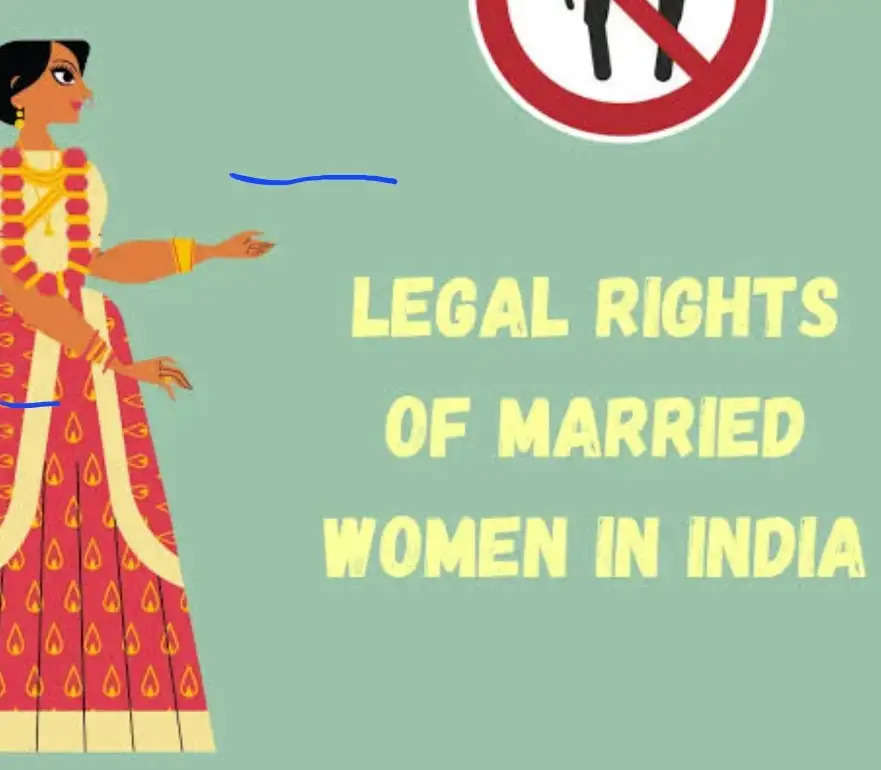What are the Legal Rights of a Married Woman In India
Since ancient times, married women in India have been subjected to a lot of atrocities. Be it sati, harassment for dowry, or domestic violence. Some of these practices still exist and even educated people follow them. Women often choose to stay silent, simply because they are unaware of the married women rights in India. The Constitution of India clearly defines the legal rights of a wife. These laws protect women against injustice and ensure women have equality. When women are aware of their rights, only then they can protect themselves.
Feb 15, 2025, 06:52 IST

1. Right to Reside in the Marital Home (Matrimonial Home)
Under the Protection of Women from Domestic Violence Act, 2005 (PWDVA), a married woman has the right to reside in her matrimonial home, regardless of ownership.
She cannot be forcibly evicted by her husband or in-laws without legal proceedings.
2. Right Against Dowry Harassment
The Dowry Prohibition Act, 1961 prohibits giving or taking dowry.
Section 498A of the Indian Penal Code (IPC) criminalizes cruelty or harassment by a husband or his family related to dowry demands.
3. Right to Protection Against Domestic Violence
The PWDVA, 2005 protects women from physical, emotional, verbal, economic, and sexual abuse.
Courts can grant protection orders, residence orders, monetary relief, and custody of children to ensure the safety of a woman.
4. Right to Streedhan (Woman’s Property)
Streedhan refers to gifts (jewelry, money, property) received by a woman at the time of marriage.
The husband and in-laws have no right over this property.
The woman can claim her Streedhan under the Hindu Succession Act, 1956, and legal remedies under Section 406 IPC (criminal breach of trust).
5. Right to Maintenance and Alimony
Under Section 125 of the CrPC, a woman can claim maintenance from her husband if she is unable to support herself.
Hindu Marriage Act, 1955 (Section 24 & 25) allows a woman to seek interim and permanent alimony.
Muslim Women (Protection of Rights on Divorce) Act, 1986 ensures maintenance for Muslim women after divorce.
6. Right to Property and Inheritance
Under the Hindu Succession Act, 1956, a married woman has equal rights to inherit property from her parents.
After the 2005 Amendment, daughters have the same rights as sons in ancestral property.
A married woman also has inheritance rights in her husband’s property after his death.
7. Right to File for Divorce
A woman can seek divorce on various grounds, including cruelty, adultery, desertion, impotency, conversion of religion, and mental illness.
Under Muslim law, a woman can seek divorce through Khula (wife-initiated divorce).
The Special Marriage Act, 1954, allows divorce for interfaith couples.
8. Right to Child Custody
A mother has the primary right to custody of minor children after divorce under the Hindu Minority and Guardianship Act, 1956.
Courts generally favor the mother for custody, especially for young children, unless proven unfit.
9. Right to Marital Rape Protection (Limited)
While marital rape is not fully criminalized, under Section 498A IPC and PWDVA, a woman can seek protection and file complaints for cruelty or sexual violence by her husband.
The Delhi High Court has debated criminalization, and discussions on amending laws are ongoing.
10. Right to Work and Equal Pay
Under the Maternity Benefit Act, 1961, a married woman is entitled to paid maternity leave (26 weeks for the first two children).
Equal Remuneration Act, 1976 ensures that a married woman cannot be discriminated against in terms of pay or employment.
11. Right to Live with Dignity and Privacy
Under Article 21 of the Constitution, a woman has the right to live with dignity, freedom, and privacy.
No one, including her husband or in-laws, can force her into degrading treatment.
12. Right Against Bigamy (Second Marriage Without Divorce)
Under the Hindu Marriage Act, 1955, a husband cannot remarry without legally divorcing his first wife.
Section 494 IPC punishes bigamy with imprisonment up to 7 years.
Legal Remedies for Violations
A married woman can approach the police, women’s helplines, National Commission for Women (NCW), and family courts for legal assistance.
She can file a case under the relevant IPC sections, personal laws, and special legislation.
These rights empower married women to protect themselves from injustice and live with dignity in marriage. Would you like information on any specific law or legal remedy in detail?
